- JST Home
- /
- Strategic Basic Research Programs
- /
 PRESTO
PRESTO- /
- project/
- Co-Creation of the Transformation Platform Technology for Human and Society by Integration of the Hu/
- [Social Transformation Platform] Year Started : 2023
[Social Transformation Platform] Year Started : 2023
Tatsuya Amano
Urban Transportation Simulation by LLM Powered Agents
Grant No.:JPMJPR2361
Researcher
Tatsuya Amano
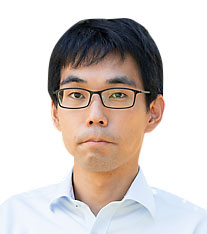
Assistant Professor
Graduate School of Information Science and Technology
The University of Osaka
Outline
In this research project, I leverage large language models (LLMs) to express each agent in urban transportation simulation. Each agent’s behavior and internal state are represented as natural language dialogues. I convert real-world data—such as people’s movements, actions, and intentions—into linguistic formats. By training the LLMs with this data, I aim to replicate human decision-making and movement patterns in transportation using a diverse range of data sources.
Hiroyuki Usui
GeoAI-based mutual interaction model between multi-scale residential environment and individuals’ behavior changes for improving buildings
Grant No.:JPMJPR2362
Researcher
Hiroyuki Usui
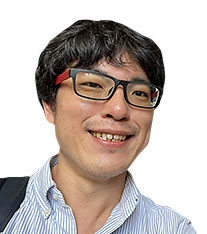
Professor
Faculty of Creative Engineering
Chiba Institute of Technology
Outline
Sustainable cities and communities are one of the major SDG’s goals. The aim of this research is to understand (1) how a series of policies for sustainable cities and communities promotes actions for improving each building and street space by individuals and communities (hereafter called ‘behavior change’) and (2) how these actions change multi-scale residential environment focusing on mutual interaction between multi-scale residential environment (e.g. safety (disaster), sanitary, amenity (streetscapes) and cultural and social sustainability) and multi-scale individuals’ behavior changes for improving building performance based on GeoAI simulation considering patterns of building locations explicitly. To this end, a series of methods for measuring multi-scale residential environment in complex physical urban space and modeling individuals’ behavior changes is developed.
Yo Ehara
Fundamental Technology for Transforming Educational Systems through the Simulation of Learners’ Thought Processes on Large Language Models
Grant No.:JPMJPR2363
Researcher
Yo Ehara
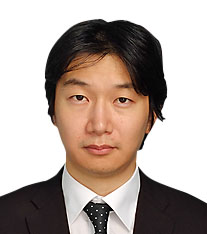
Associate Professor
Faculty of Education
Tokyo Gakugei University
Outline
Providing appropriate guidance to learners, also called “scaffolding” in pedagogical terms, requires considering not only the amount of their knowledge and reasoning ability but also their varying areas of comprehension through the simulation of the thought processes of each individual learner. This research aims to study and develop AI technology based on large language models that can be applied in educational institutions to provide individually adaptable and suitable advice to students. This technology maps the internal state of the AI to pedagogical concepts so that school teachers can understand the AI’s assessment of individual learners, exploring the new academic field called computational education. Furthermore, it realizes AI-based infrastructure to reduce the workload of teachers, enabling collaboration between AI and educators.
So Kubota
A field experiment on the connection between night sleep and daytime activities
Grant No.:JPMJPR2364
Researcher
So Kubota
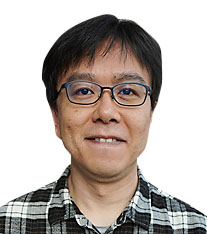
Associate Professor
Graduate School of Economics and Management
Tohoku University
Outline
In our high-stress society, people pay attention to improving sleep. My research aims to explore the channel through which improved nighttime sleep leads to behavioral changes in the daytime and ultimately advances society as a whole. Field experiments with digital devices and smartphone apps capture various medical and behavioral changes. These individual-level results are incorporated into an integrated medical, social, and economic simulation model to examine the macro-level social transformation.
Makoto Kuroki
Research and Development of Social Implementation Process Methodology for Public Policy Application of Social Simulation: A Survey-based Experiment Approach
Grant No.:JPMJPR2365
Researcher
Makoto Kuroki
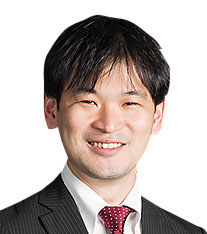
Professor
Graduate School of Data Science
Yokohama City University
Outline
This project explores modeling methods for the adoption of social simulation by using nudges and other methodologies that promote behavioral change, a survey will be constructed based on a design that focuses on the presence of predictive information, noise level, and message framing in a social simulation and divided into five categories with 1 + 2 x 2 treatments. After conducting interviews and an online survey experiment, a field-based survey experiment will be conducted to contribute to the promotion and diffusion of social implementation process.
Mamoru Komachi
Employing natural language processing to predict the future for decision making
Grant No.:JPMJPR2366
Researcher
Mamoru Komachi
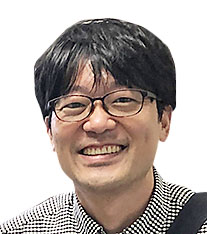
Professor
Graduate School of Social Data Science
Hitotsubashi University
Outline
In this study, we present a novel language model that takes into account changes over time to tackle future prediction tasks. We construct an open dataset that comes with value judgment labels based on insights derived from social sciences. This approach not only allows for the broad verification of the language model by the wider community but also encourages its improvement by individuals from various fields. Furthermore, by clearly presenting the rationale and reliability behind the predictions generated by this model, we increase its acceptability and trust among potential users. The language model crafted through this research project will support and facilitate the interactive and dynamic processes involved in evidence-based policy formulation and critical decision-making.
Masanori Takano
Designing Metaverse Experiences to Improve the Problems People Face
Grant No.:JPMJPR2367
Researcher
Masanori Takano
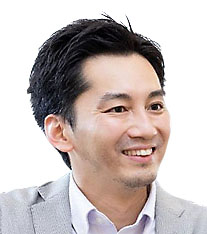
Researcher
Multidisciplinary Information Science Center
CyberAgent, Inc.
Outline
We conduct survey research and intervention experiments in the metaverse, revealing the effects of interventions on individual problems and changes in social networks. By intervening in the user experience of the metaverse, we aim to promote changes in social behavior in both the metaverse and the real world, and to deepen and expand the user’s social network in both societies. Based on these findings, we construct a two-layer social network model of the metaverse and reality, and evaluate the long-term and global effects of interventions.
Shunya Noda
Market Design for Complex Environments
Grant No.:JPMJPR2368
Researcher
Shunya Noda

Assistant Professor
Faculty of Economics
The University of Tokyo
Outline
Market design is an innovative and interdisciplinary academic field aimed at scientifically and technologically informed institutional arrangements. However, its primary reliance on analytical approaches has limited its capacity to optimize system designs in complex environments. This research employs deep reinforcement learning techniques to approximate agents’ value functions, thereby enabling the formulation of optimal policies for critical issues previously considered intractable. Potential applications include kidney exchange and vaccine distribution.
Teruaki Hayashi
Trust-building from Mutual Distrust in a Data Distribution Society
Grant No.:JPMJPR2369
Researcher
Teruaki Hayashi
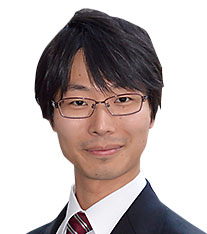
Lecturer
School of Engineering
The University of Tokyo
Outline
The utilization of data across fields is attracting attention as a new source of innovation. However, clarifying the process by which trust is fostered from a situation of mutual distrust to data transactions is an important issue in the coming data distribution society. This project will contribute to the creation of a new data society infrastructure by elucidating the emergent effects of complex data distribution and transactions under conditions of uncertain trust, constructing a data distribution and transaction mechanism, and implementing a data distribution simulation.
Tsubasa Minematsu
Learning system with copy learner models for the learner’s performance prediction and learning by teaching
Grant No.:JPMJPR236A
Researcher
Tsubasa Minematsu
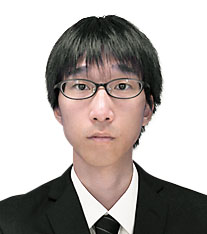
Associate Professor
Faculty of Computer Science and Systems Engineering
Kyushu Institute of Technology
Outline
In this project, a simulation method for predicting the learner’s performance, a learning content generation method based on the learning simulation, and a learning environment for learning by teaching with the learner’s copy model are developed to support the learner automatically. The core technology is a copy learner model, which imitates the learners’ sentence generation process using a large-scale language model and is used for understanding detailed learning status. Based on the copy learner model, the learning system developed in this project integrates learning assessment, learning content generation, and a peer learning environment to automate the loop with the assessments, the content generation, and the support.
Hiroaki Yamada
Simulating legal argumentation with multi agents reflecting norms and values
Grant No.:JPMJPR236B
Researcher
Hiroaki Yamada
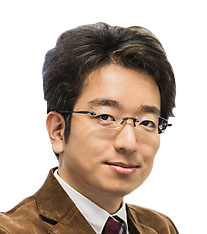
Assistant Professor
School of Computing
Institute of Science Tokyo
Outline
This project is to develop a multi-agent legal argumentation simulation where three different agents of plaintiff, defendant, and judge participate. While the previous study of legal judgment prediction requires factual allegations and claims from parties as given inputs, this framework aims to generate intermediate argumentations and interactions between the parties to make the simulation more precise. Moreover, this project explores methods that enable agents to reflect points of view from different parties and methods that makes agent acquire laws and norms that can be different from country to country.
Hiroaki Yamada
Creating society-in-the-loop social simulation recreating reality
Grant No.:JPMJPR236C
Researcher
Hiroaki Yamada
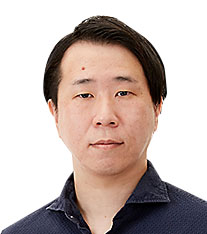
Researcher
Fujitsu Research
Fujitsu Limited
Outline
Social simulation is a tool that can generate evidences for decision-making through virtual experiments, even in situations where there is insufficient accumulation of data and knowledge. However, implementation has not progressed sufficiently due to low predictability and lack of verifiability. This project aims to solve the problem by creating a society-in-the-loop social simulation design method that incorporates data assimilation and verification by decision makers in social experiments.













